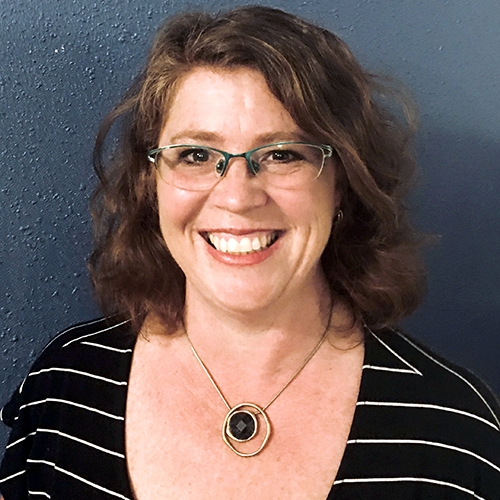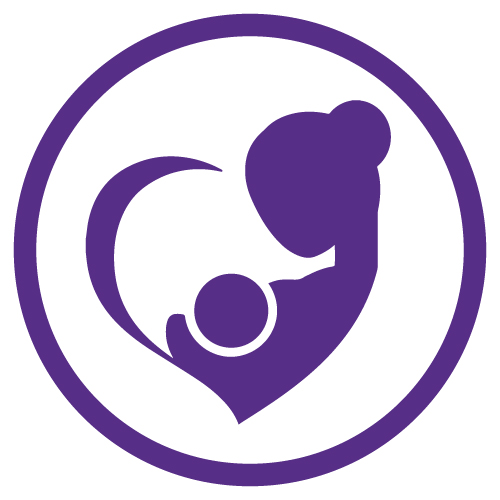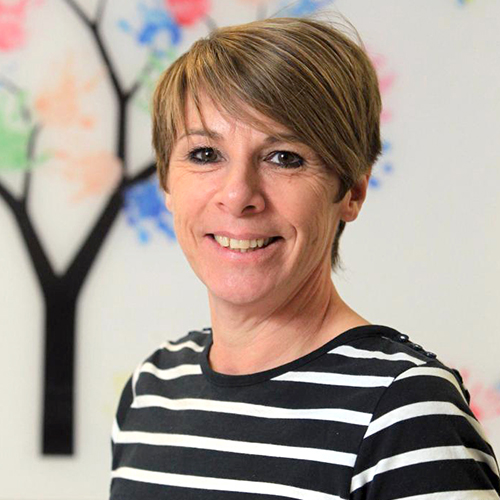 Hospice & Palliative Care Online Course(s) & Continuing Education
Hospice & Palliative Care Online Course(s) & Continuing Education
Access the latest clinical skills and research for Hospice & Palliative Care for NEONATOLOGY professional training. These Hospice & Palliative Care online courses provide practice-changing skills and valuable perspectives from leading global experts. This Hospice & Palliative Care education has been accredited for a variety of CEUs / CERPs and can be accessed on-demand, at your own pace.


Christine Bishop is a neonatologist, bioethicist, medical educator, and Assistant Professor of Pediatrics at Wake Forest University School of Medicine and Brenner Children’s Hospital in Winston-Salem, NC. She founded and directs the Brenner Children’s Hospital Care Always ™ Neonatal/Perinatal Palliative Care Program that provides holistic care for infants with life-limiting and complex medical conditions. Dr. Bishop received her MD from The Ohio State University School of Medicine and Public Health and completed her pediatric residency and neonatology fellowship at the University of Texas Health Sciences Center San Antonio. She completed a Master of Arts in bioethics at the Wake Forest University Center for Bioethics, served as the lead clinical ethics consultant for Wake Forest Baptist Medical Center, chairs the Clinical Ethics Consultation Committee, and co-directs the undergraduate medical humanities course at Wake Forest University School of Medicine.
Palliative care is a dynamic, multidisciplinary field of medicine that focuses on holistic care for patients with complex, serious, and life-limiting conditions. Neonatal/perinatal palliative care involves care for women pregnant with fetuses who have potentially life-limiting conditions, a holistic approach to family care and decision making, and care for infants with life-limiting or complex medical conditions. This session will discuss key aspects of neonatal/perinatal palliative care. We learn so much from our patients and families, and their stories will provide the framework as we work through important concepts in neonatal/ perinatal palliative care. Topics to be discussed include communication, shared decision making, managing uncertainty, pharmacologic and non-pharmacologic approaches to care, the role of hospice, and ethical issues involved in care of neonates at the end of life.

View Details / Enroll

Newborns are Children too! Ethical Challenges in Neonatology
 Franco Carnevale,
RN, PhD (Psych), PhD (Phil); Nurse, Psychologist, Clinical Ethicist(Children & Youth)
Franco Carnevale,
RN, PhD (Psych), PhD (Phil); Nurse, Psychologist, Clinical Ethicist(Children & Youth)

Franco A. Carnevale is a nurse, psychologist and clinical ethicist. He completed: an undergraduate nursing degree, three master's degrees (nursing, education, bioethics), and doctorate in counseling psychology at McGill University; a master’s degree in philosophy at Université de Sherbrooke and a second doctorate in moral philosophy at Université Laval. Dr. Carnevale is the founder and principal investigator for VOICE (Views On Interdisciplinary Childhood Ethics); a McGill University-based international initiative to advance knowledge and practices relating to ethical concerns in childhood. Current academic appointments include (McGill University): Full Professor, Ingram School of Nursing; Associate Member, Faculty of Medicine (Pediatrics); Adjunct Professor, Counselling Psychology; Affiliate Member, Biomedical Ethics Unit. Clinical appointments include: Associate Member, Pediatric Critical Care, Montreal Children's Hospital; Clinical Ethics Consultant, The Lighthouse, Children and Families (pediatric hospice and respite care); Clinical Ethicist, Child, Adolescent, and Family Services, Douglas Mental Health University Institute; Chair, Clinical Ethics Committee, Shriner's Hospitals for Children (Canada). Dr. Carnevale is a founding member of the Board of Directors of the World Federation of Pediatric Intensive and Critical Care Societies (WFPICCS) and founding member of the Editorial Board of Pediatric Critical Care Medicine.
 Franco Carnevale,
RN, PhD (Psych), PhD (Phil); Nurse, Psychologist, Clinical Ethicist(Children & Youth)
Franco Carnevale,
RN, PhD (Psych), PhD (Phil); Nurse, Psychologist, Clinical Ethicist(Children & Youth)
Advances in pediatric ethics have helped identify ethical concerns that arise in the care of children as well as strategies for addressing these concerns. Despite these important innovations, some significant ethical problems persist in neonatology, which seem rooted in particular challenges involved in the care of newborns and their families. These include concerns regarding: excessive care for infants with limited prognoses; dismissive care toward projected disability; providing palliative care; parental roles and responsibilities; inadequate pain management; cross-cultural disagreements; and moral distress among staff and parents. These tensions commonly relate to: (a) difficulties in defining infants’ best interests; (b) tensions regarding the respective decisional authority of parents and health professionals; and (c) tragic situations where all treatment options seem wrong. Strategies for analyzing and reconciling these ethical concerns will be discussed.

View Details / Enroll

Palliative Care: Why and How to Provide Lactation Support During Serious Illness or Before an Anticipated Death

Elizabeth began her career in maternal health in 2000 after earning a Master of Public Health with an emphasis in maternal child nutrition. She accepted a job teaching childbirth education at the University of Utah Hospital and taught for two years before being promoted to the coordinator of that department.
When the hospital decided to begin the journey to become Baby Friendly, Elizabeth was asked to be on that committee and eventually was asked to be the Baby Friendly Coordinator. During this process, it was a natural step for her to earn her IBCLC. Recently Elizabeth was promoted to the manager of the lactation inpatient team in addition to her other responsibilities.
An advocate for maternal health in all areas, Elizabeth serves as the board chair and founding board member for the Mountain West Mothers' Milk Bank. She is the president elect for the International Childbirth Education Association, and the secretary for PSI-Utah. She sits on the University of Utah Perinatal Bereavement Committee, Discharge Quality Committee, and have served on multiple other committees over the years.
She has been married for over thirty years and is the mom of three children. She still has time to pursue other passions such as singing, gardening, exercising, and spending time with her friends and family.
In non-covid times, she can be found on Friday nights calling Bingo for her church and volunteering in other capacities.
In this presentation you will learn about palliative care, hospice, and anticipated death in the early newborn period and why breastfeeding is still important. We will explore the benefits both nutritionally and psychologically for the family experiencing this difficult situation. Using the story of the family who inspired the presenter to explore the options and choices, participants will gain a better understanding of ways to look outside their usual practice to be a support for families. In times of anticipated death and bereavement, it is sometimes difficult to know what to do or say but being open to learning from others and challenging ourselves to be support in different situations, we have an opportunity to help families heal.

View Details / Enroll


Lisa Leppard has worked within a Neonatal Tertiary Unit for 30 years in Clinical, Management, Network and National roles. Her current role, which she has undertaken for 19 years, has been developing the post of Clinical/Family Support Lead Nurse within a tertiary Neonatal Unit, utilising clinical evidence, audit, data and parent/carer feedback. She is responsible for the completion of national databases i.e. MBRRACE & PMRT. Initially this role was part-time but she has developed it, making it into a full-time role and leading a team of 3. The team also includes a clinical psychologist and to gain funding for this role, she worked collaboratively on the business case as part of the Neonatal Parents Mental Health Framework. The team ensures that Family Centred Care remains integral to the unit's ethos & that the parents/carers are given a voice and are well supported. Until recently, she was also the Safeguarding Lead for the Neonatal Unit and completed Level 3 training in Safeguarding. She has extensive experience with audit, working with all levels of the multidisciplinary teams. She was the lead for the BLISS Accreditation of the UHS Neonatal Unit, which was the first unit to be awarded Family Friendly Accreditation within the UK. She was recently part of the BLISS working party to review and update the BLISS audit tool and has also been a Professional BLISS Baby Charter Assessor. She has been the Thames Valley and Wessex Neonatal Network Lead Nurse for Palliative Care for 6 years. To facilitate standardisation of palliative care across the Network, she co-wrote the Palliative Care Pathway adopted and adapted in 2014 by TV&W NNW. She recently facilitated the review and update of the Palliative Care Pathway within the Network. In 2017, she contributed to the review and re-launch of the Together For Short Lives Neonatal Palliative Care Pathway. She is a chapter co-author in the new Palliative Care Text Book for Neonatal Nurses. She co-wrote the chapter on the Nurse’s role in the decision making process. (Neonatal Palliative Care for Nurses. Springer, 2020)
As lead of the Family Support Team, Lisa has developed a link with the Fetal Medicine Team working with families where a life-limiting diagnosis has been made to both support and plan the care of the parents and their baby at delivery and beyond, as well as completing ACP’s and discussing symptom management with parents and medical colleagues. This process includes acting as an advocate for the baby and their families, and always listening to their individual needs. She was part of the team to adapt a Perinatal Palliative Care Pathway for the Wessex Region. She has also worked collaboratively with the Multidisciplinary Paediatric teams to develop pathways to ensure the transition of care of neonates to Paediatrics is seamless & the parents/carers are well supported in the process.
Lisa has been seconded to develop the role of Neonatal Palliative Care Specialist Nurse at Naomi House, a local children’s hospice, raising the profile of hospice care being accessible to neonatal families and staff. She has developed a referral pathway and has visited all the units in the Wessex region, establishing contacts & promoting this as a choice to be offered to parents. She has undertaken the UNICEF Breast Feeding Training course and supported the Breast Feeding Lead Nurse with working towards the Baby Friendly Initiative within her unit. She completed a Counselling Diploma in 2016 and qualified as a Civil Mediator in 2018. Both of these qualifications have enhanced her communication and listening skills when working with families and professionals at all levels. She has a proven track record of managing and defusing challenging situations. She has developed Parental Support Groups and initiated a Father’s Group on the Neonatal Unit.
End of life care in the NICU is challenging for parents and staff alike. Nurses are a vital part of the NICU team and during end of life care they facilitate support and information to parents as well as colleagues and provide regular assessments of the baby. Accurate and consistent information is vital for the parents to feel empowered to engage fully. This part of a neonatal nurse's role can be emotionally challenging, and this is an important point to highlight. This presentation aims to evoke discussion around the nurses role in the decision making process when moving to end of life care of a baby and includes measures to ensure that staff feel involved and supported throughout the process.










